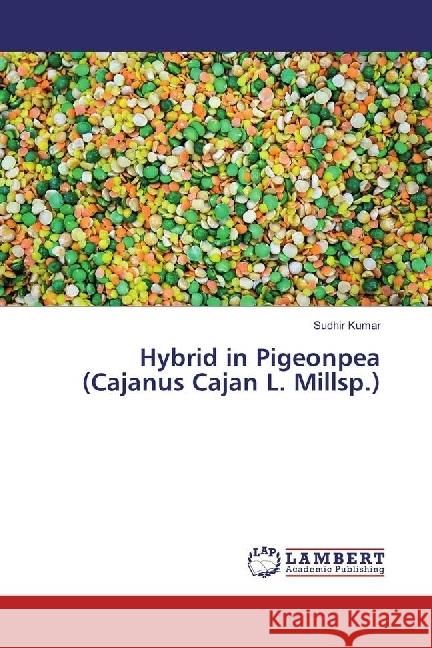Hybrid in Pigeonpea (Cajanus Cajan L. Millsp.) » książka
Hybrid in Pigeonpea (Cajanus Cajan L. Millsp.)
ISBN-13: 9783659683916 / Angielski / Miękka / 2017 / 104 str.
An investigation was carried out at ICRISAT, Patancheru, during kharif season of 2013-14 to study identification of the fertility restorers (R-line) and maintainers (B-line) in pigeonpea [Cajanus cajan (L.) Millsp.] genotypes and standard heterosis in pigeonpea hybrids. A total of 20 hybrids were generated by hand pollinating five CMS-lines with 11 male lines from diverse sources during 2012-13 kharif season. In kharif 2012-13 also study was done for effectiveness of these five CMS lines. The study confirmed the existence of high level of male sterility (99.60 to 95.69%) in all five CMS lines used in crossing programme. The studies on fertility restoring capacity of 11 male lines on these five CMS lines were ranged from 59.22 to 98.50% and ICPL 87119 was one of the best restorer. Among 22 genotypes, ICPA 2043 x ICPL 87119 required minimum number of days to 50% flowering and it was significantly earlier over mean performance and check Asha. Pigeonpea is a considered as quantitative short-day flowering plant i.e., onset of flowering is hastened as the day-length reduces. Moreover, both low and high temperature may also delay flowering in pigeonpea.











